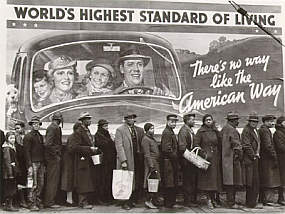Anyone familiar with my writings on both the business world and the necessity of Christian community knows I have some strong opinions. I’ve been writing for years that we Christians, as much as we talk about community, see our family units as little islands, that while floating in the same Christian sea as other islands, never truly touch. Couple that view with my view on business and you have today’s post, the introduction of a solution to some of that disconnectedness.
I’ve added a page to Cerulean Sanctum. You can see it up top. It’s called Employ the Body!
Employ the Body! is my attempt to help Christian freelancers (like yours truly), the self-employed, or those who own small businesses, leverage the power of the Web to help generate business. It’s also my way of increasing the Google Page Rank for those who would otherwise wind up buried in a sea of Google results should someone type in graphic designer or mechanic.
I’m offering this page as a free opportunity for you to link your business’s Web site on a blog with a large readership. No strings. No cost. No hidden gotchas. To get listed, you need to meet the following requirements:
You are a freelancer, self-employed, or the owner of a small business.
You are a born-again Christian.
You are a commenter on Cerulean Sanctum or have emailed me outside of blogging. In other words, I need to recognize your name. (The exception to the rule concerns spouses. If you are a regular commenter or emailer but your spouse isn’t, he/she still has a connection through you, so his/her business can be listed here. Spouses must also be born-again to qualify.)
Any business is welcome so long as it is legitimate. I will add additional business classifications to the page as necessary. (I do reserve the right to reject a listing that I deem inappropriate or contrary to the nature of the conversation here at Cerulean Sanctum.)
To be listed, I need your company logo (125 px in height), the name of your company, your name and title, the URL to your Web site, and, if you have one, a LinkedIn profile page link.
Those are the very simple rules.
I do have a request, though. It’s not mandatory, but it makes the whole idea work:
If you wish to be listed here, and you have a blog or Web site, I would gratefully request that you either link to the Employ the Body! page or reproduce the page on your own site in its entirety.
I say that because many small, Christian businesses can’t generate enough links to get a decent Page Rank in Google. In other words, the Internet noise drowns out a legitimate signal. That’s where the backlinking makes a big difference. With more and more people using the Web to locate companies, the difference between success and failure for a small Christian business can be a few dozen clicks. Seriously.
Employ the Body! has the opportunity to help other believers. If you’ve read this blog long enough, you know the improtance of community in tough times. If we can’t help each other, how then can we say that we are the light of the world through Christ living in us?
For those of you reading who aren’t freelancers, self-employed, or small business owners, you can still help your brothers and sisters in Christ who are by linking to the Employ the Body! page on your own blogs or by using the services of the companies listed there. (Understand, though, that I can’t vouch for the services rendered by other parties listed on that page. As with anything, wisdom is called for when dealing with any business, whether it calls itself Christian or not. In other words, your mileage may vary.)
Lastly, many people have asked how they can support me. Some have donated to Cerulean Sanctum, and that’s a huge blessing to my family. I realize, though, that not everyone has the means to do so. That’s perfectlyt understandable. You can help in another way. If you have a blog or Web site, please consider linking to the Employ the Body! page and to my freelance writing and editing business, Ethereal Pen Productions. It would mean a lot to me and to those listed on Employ the Body!
And if you ever need a writer or editor who can make documents sizzle, I’m right here.
Thanks, as always, for supporting the writing at Cerulean Sanctum. Now you have a free way to support other brothers and sisters in Christ, too.
Blessings,
Dan Edelen

 During that time, I got a sinus infection and the doctor strongly recommended I get a series of X-rays taken to judge the severity of the infection. When I found out how much the X-rays would cost, I passed on them.
During that time, I got a sinus infection and the doctor strongly recommended I get a series of X-rays taken to judge the severity of the infection. When I found out how much the X-rays would cost, I passed on them. We “exacerbate unemployment issues by staying put” and cause untold hardship fighting for zoning laws that restrict sprawl and consumerism.
We “exacerbate unemployment issues by staying put” and cause untold hardship fighting for zoning laws that restrict sprawl and consumerism.